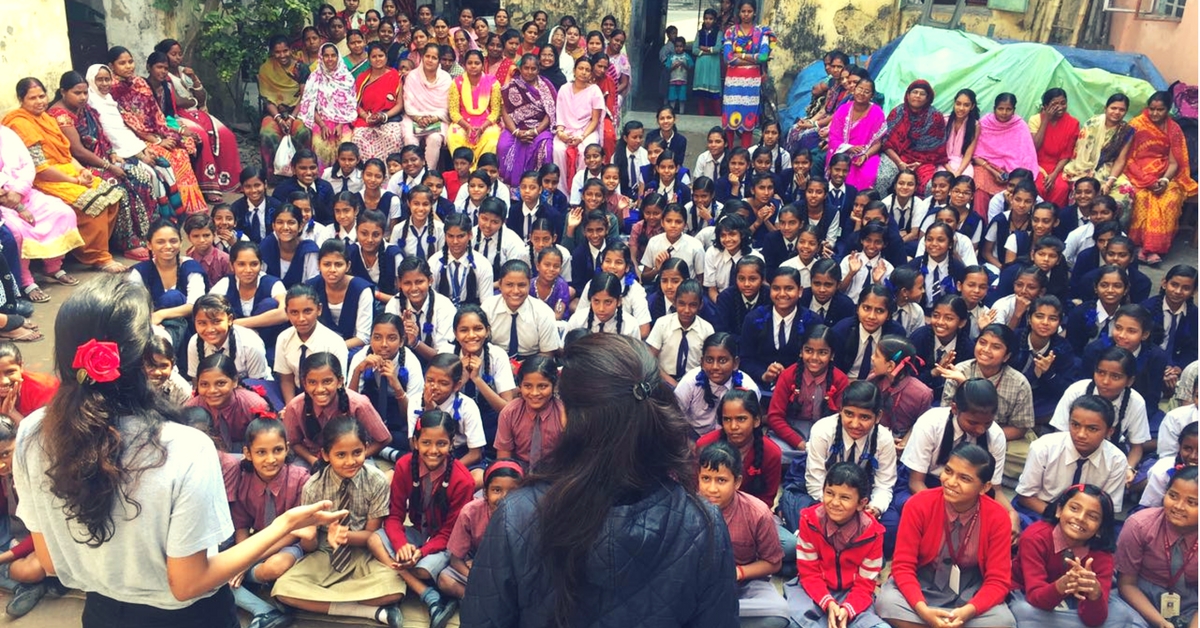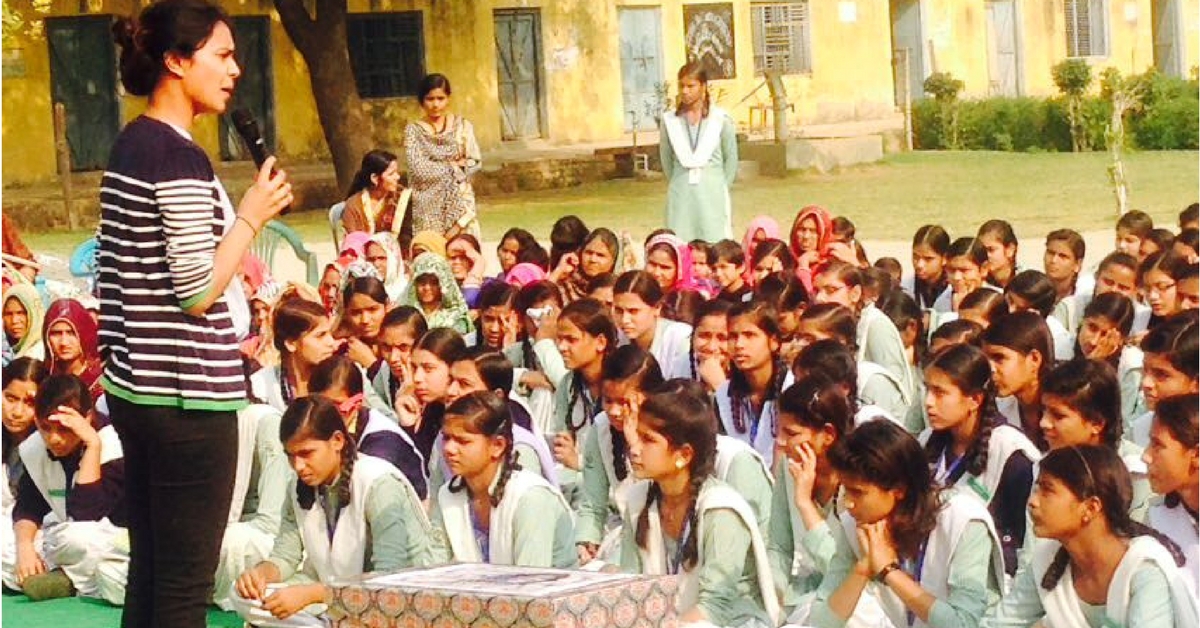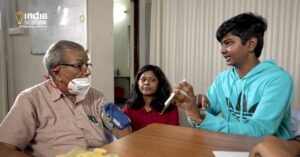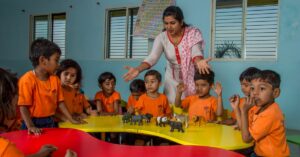Demystifying Menstruation: These Women Educate Rural Girls & Provide Eco-Friendly Sanitary Napkins
Soumya Dabriwal and Nitisha Sethia have taken it upon themselves to provide girls in rural India with two vital things: knowledge about menstruation and environment-friendly, hygienic sanitary napkins.

Soumya Dabriwal and Nitisha Sethia have taken it upon themselves to provide girls in rural India with two vital things: knowledge about menstruation and environment-friendly, hygienic sanitary napkins.
Lack of scientific understanding about menstruation, rampant myths and misconceptions, and limited or no access to hygienic menstrual products are some of the biggest problems crippling the women in rural India. While many studies and reports have brought to light the woes of women when it comes to menstruation, there have been fewer efforts to create awareness and provide access to sanitary products.
Project Baala is one among the few initiatives that aim at spreading awareness about menstruation in rural schools as well as providing rural women and girls with environment-friendly sanitary pads.

The women behind the initiative are Soumya Dabriwal and Nitisha Sethia. The brainchild of Soumya, the project took shape when she was pursuing her graduation in Economics at the University of Warwick, UK. While working on a project, she grew interested in the field of menstrual hygiene, and after reading several reports about the dismal ground reality of menstruation-related issues in India, decided to take action.
“According to a report by Nielsen Corporation, 88% menstruating women in India do not use any sanitary products during their period and use alternatives like pieces of rag, ash, sand and husk. Almost one in every four adolescent girls in the country quits school due to the lack of any sanitary facilities. It’s such a drastic statistic, that I decided I needed to do something about it,” says Soumya.
She received funding for the project in March 2016 from the University of Warwick with two objectives on her mind: To generate awareness about menstrual health and hygiene via workshops in rural areas, and distribute reusable environment-friendly sanitary pads for women.
Through a mutual friend, Soumya was introduced to Nitisha, an Indian Institute of Management, Ahmedabad, graduate, who had a similar project on her mind. The two clicked and Project Baala was born.
After conducting extensive research, the duo decided on manufacturing environment-friendly sanitary pads to be distributed in the villages. The pad is made of three layers of cloth stitched together, is reusable and can be used for a period of 1.5 to 2 years. The duo now visits different villages across India to conduct awareness workshops in schools and distribute a kit of 3 pads to every participant.
Currently, they outsource the production of these pads to a manufacturer, but are planning to set up their own manufacturing unit soon.

“So far, we have visited different villages in states like Haryana, Uttar Pradesh, Andhra Pradesh, and West Bengal. It’s only the two of us who conduct these workshops, but from time to time, our friends and acquaintances come with us to volunteer,” says Nitisha.
Being a working professional and running a project like this simultaneously is certainly not a piece of cake. But here’s what they say: “What’s done out of passion doesn’t feel like work.”
Soumya is based in Delhi and Nitisha lives in Kolkata. The two coordinate online and conduct workshops individually.
“The workshops are actually what keep us going. These grassroots experiences teach us a lot. We often begin our workshop by asking girls to explain why we menstruate. The answers are often full of misconceptions, myths and taboos, like ‘we menstruate to get rid of the impurities inside our body.’ We then repeat the same question at the end of the workshop and when the girls answer with correct scientific facts, it’s a precious moment,” says Nitisha.
Also read: My View: Why It’s High Time We Recognize and Fill the Jarring Gaps in Our Education System
To know more about Project Baala, visit the official website here and the Facebook page here. To support their cause and contribute to the fundraiser, click here.
Like this story? Or have something to share? Write to us: [email protected], or connect with us on Facebook and Twitter.
NEW: Click here to get positive news on WhatsApp!
This story made me
- 97
- 121
- 89
- 167
Tell Us More
We bring stories straight from the heart of India, to inspire millions and create a wave of impact. Our positive movement is growing bigger everyday, and we would love for you to join it.
Please contribute whatever you can, every little penny helps our team in bringing you more stories that support dreams and spread hope.



















